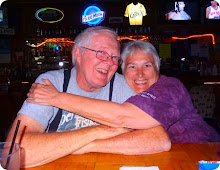When we reached this site, the visitor’s center was closed and only open on week-ends during the winter months. But being able to see where George Washington crossed the river and learn the history behind this move made me appreciate even more what these heroes did in their fight for freedom.
It was a desperate act at a time when his country needed it most. George Washington’s crossing of the Delaware River in the dead of the night on Christmas and his subsequent victories in New Jersey energized a tired and sad Colonial Army and gave the American people cause for celebration. It was a desperate gamble, and it worked.
Painting by Emanuel Leutze.
Here's how:
The British forces had occupied Boston and New York, forcing American evacuations of those two important cities. Frankly, the British were coming dangerously close to eliminating resistance in the north. The Declaration of Independence didn't make them any happier, either.

It was Christmas, and the Hessians on the other side of the Delaware River, in New Jersey, were sure to be drunk and tired. (The Hessians, German soldiers fighting for Britain, were known for their drinking and their partying, especially on major holidays like Christmas.)
By waiting until nightfall, Washington was able to achieve maximum surprise. But he had to get across the river first.

Chaos followed, but it was chaos on one side only. The Colonial forces routed the Hessians, sending them running from cover. The whole affair lasted only 45 minutes, and Colonial soldiers took 900 Hessians prisoner. The tired, hungry Americans also found food, supplies, and especially ammunition.
Building on their success, the Americans marched onward, toward Princeton, where they defeated the British a few days later. These two victories drove the British out of New Jersey and gave the American army and the American people a tremendous sense of achievement. Victories had been hard to come by lately, and the victories in New Jersey, emphasizing the daring of George Washington as they did, gave the people new hope that their cause was right and new determination that they could win their independence at last.


























 This is a gorgeous area of New York and has more than 70 wineries. Since we don’t drink wine, the wineries were wasted on us, but not the beauty of the lakes and the lands around them.
This is a gorgeous area of New York and has more than 70 wineries. Since we don’t drink wine, the wineries were wasted on us, but not the beauty of the lakes and the lands around them. 




















